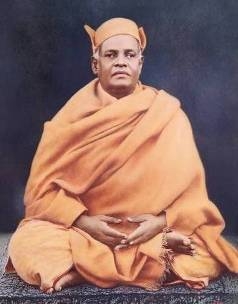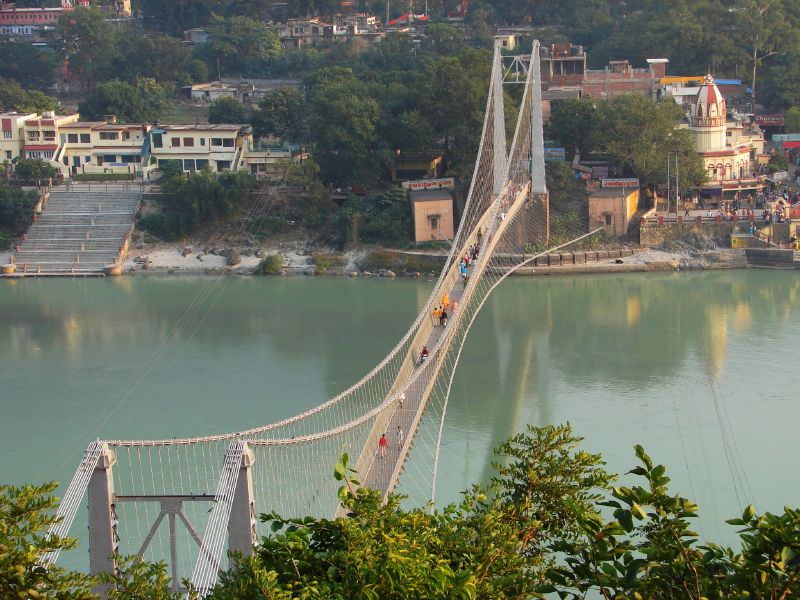|
Swami Sivananda
Swami Sivananda Saraswati (; 8 September 1887 – 14 July 1963), also called Swami Sivananda, was a Modern yoga gurus, yoga guru, a Hinduism, Hindu spiritual teacher, and a proponent of ''Vedanta''. Sivananda was born in Pattamadai, in the Tirunelveli district of modern Tamil Nadu, and was named Kuppuswami. He studied medicine and served in British Malaya as a physician for several years before taking up monasticism. He was the founder of the Divine Life Society (DLS) in 1936, Yoga-Vedanta Forest Academy (1948) and the author of over 200 books on yoga, ''Vedanta'', and a variety of subjects. He established Sivananda Ashram, the headquarters of the DLS, on the bank of the Ganges at Muni Ki Reti, from Rishikesh, and lived most of his life there. Sivananda Yoga, the yoga form propagated by his disciple Vishnudevananda, is now spread in many parts of the world through Sivananda Yoga Vedanta Centres. These centres are not affiliated with Sivananda's ashrams, which are run by the ... [...More Info...] [...Related Items...] OR: [Wikipedia] [Google] [Baidu] |
Swami
Swami (; ; sometimes abbreviated sw.) in Hinduism is an honorific title given to an Asceticism#Hinduism, ascetic who has chosen the Sannyasa, path of renunciation (''sanyāsa''), or has been initiated into a religious monastic order of Vaishnavas. It is used either before or after the subject's name (usually an adopted religious name). An alternative form, swamini (), is sometimes used by female renunciates. The meaning of the Sanskrit root of the word ''swami'' is "[he who is] one with his Philosophy of self#Self in Eastern traditions, self" ( stands for "self"), and can roughly be translated as "he/she who knows and is master of himself/herself". The term is often attributed to someone who has achieved mastery of a particular Yoga, yogic system or demonstrated profound devotion (''bhakti'') to one or more Hindu gods. The ''Oxford English Dictionary'' gives the etymology as: As a direct form of address, or as a stand-in for a swami's name, it is often rendered ''Swamiji'' (als ... [...More Info...] [...Related Items...] OR: [Wikipedia] [Google] [Baidu] |
Sivananda Radha Saraswati
Sivananda Radha Saraswati (March 20, 1911 – November 30, 1995), born Sylvia Demitz, was a German yogini who emigrated to Canada and founded 'Yasodhara Ashram'' in British Columbia. She established a Western-based lineage in the Sivananda tradition and published books on several branches of Yoga, including ''Kundalini Yoga for the West'' and ''Mantras: Words of Power''. She was a member of the California Institute of Transpersonal Psychology and developed transpersonal psychology workshops to help students prepare for intense spiritual practiceYasodhara teacherstrained at Yasodhara Ashram can now be found across North America and in Europe, the Caribbean, Japan, Australia and New Zealand. Biography Early life Sivananda Radha (born as Sylvia Demitz, and during her marriage known as Ursula Sylvia Hellman) was born in Germany on March 20, 1911. She became a creative writer, photographer and a solo concert dancer early in life. She lived through both wars in Berlin but learned fr ... [...More Info...] [...Related Items...] OR: [Wikipedia] [Google] [Baidu] |
Rishikesh
Rishikesh, also spelt as Hrishikesh, is a city near Dehradun in the Indian state Uttarakhand. The northern part of Rishikesh is in the Dehradun district while the southern part is in the Tehri Garhwal district. It is situated on the right bank of the Ganges River and is a pilgrimage town for Hindus, with ancient sages and saints meditating there in search of higher knowledge. There are numerous temples and ashrams built along the banks of the river. It is known as the "''Gateway to the Garhwal Himalayas''" and "''Yoga Capital of the World''". The city has hosted the annual International Yoga Festival on the first week of March since 1999. Rishikesh is a vegetarian-only and alcohol-free city. The Tehri Dam is located away from Rishikesh. Uttarkashi, a popular yoga destination, is uphill on the way to Gangotri Dham, Gangotri. Rishikesh is the starting point for travelling to the four Chota Char Dham pilgrimage places: Badrinath, Kedarnath, Gangotri, and Yamunotri. It is also a ... [...More Info...] [...Related Items...] OR: [Wikipedia] [Google] [Baidu] |
Ganges
The Ganges ( ; in India: Ganga, ; in Bangladesh: Padma, ). "The Ganges Basin, known in India as the Ganga and in Bangladesh as the Padma, is an international which goes through India, Bangladesh, Nepal and China." is a trans-boundary river of Asia which flows through India and Bangladesh. The river rises in the western Himalayas in the States and union territories of India, Indian state of Uttarakhand. It flows south and east through the Gangetic Plain, Gangetic plain of North India, receiving the right-bank tributary, the Yamuna, which also rises in the western Indian Himalayas, and several left-bank tributaries from Nepal that account for the bulk of its flow. In West Bengal state, India, a feeder canal taking off from its right bank diverts 50% of its flow southwards, artificially connecting it to the Hooghly River. The Ganges continues into Bangladesh, its name changing to the Padma River, Padma. It is then joined by the Jamuna River (Bangladesh), Jamuna, the lower str ... [...More Info...] [...Related Items...] OR: [Wikipedia] [Google] [Baidu] |
Yoga
Yoga (UK: , US: ; 'yoga' ; ) is a group of physical, mental, and spiritual practices or disciplines that originated with its own philosophy in ancient India, aimed at controlling body and mind to attain various salvation goals, as practiced in the Hindu, Jain, and Buddhist Buddhism, also known as Buddhadharma and Dharmavinaya, is an Indian religion and List of philosophies, philosophical tradition based on Pre-sectarian Buddhism, teachings attributed to the Buddha, a wandering teacher who lived in the 6th or ... traditions. Yoga may have pre-Vedic period, Vedic origins, but is first attested in the early first millennium BCE. It developed as various traditions in the eastern Ganges basin drew from a common body of practices, including Vedas, Vedic elements. Yoga-like practices are mentioned in the ''Rigveda'' and a number of early Upanishads, but systematic yoga concepts emerge during the fifth and sixth centuries BCE in ancient India's sannyasa, ascetic and ... [...More Info...] [...Related Items...] OR: [Wikipedia] [Google] [Baidu] |
Yoga-Vedanta Forest Academy
The Divine Life Society (DLS) is a Hindu spiritual organization and an ashram, founded by Swami Sivananda Saraswati in 1936, at Muni Ki Reti, Rishikesh, India. The Society has branches around the world, with its headquarters in Rishikesh. History In 1936, after returning from a pilgrimage, Swami Sivananda stayed in an old hut on the banks of the Ganges in Rishikesh. The King of Tehri Garhwal granted him a plot of land to construct the present day Shivanandashram.Introduction Chidananda Saraswati served as president of the society from August 1963 to 28 August 2008, while [...More Info...] [...Related Items...] OR: [Wikipedia] [Google] [Baidu] |
British Malaya
The term "British Malaya" (; ) loosely describes a set of states on the Malay Peninsula and the island of Singapore that were brought under British Empire, British hegemony or control between the late 18th and the mid-20th century. Unlike the term "British Raj, British India", which excludes the Indian princely states, British Malaya is often used to refer to the Federated Malay States, Federated and the Unfederated Malay States, which were British protectorates with their own local rulers, as well as the Straits Settlements, which were under the sovereignty and direct rule of the British Crown, after a period of control by the East India Company. Before the formation of the Malayan Union in 1946, the territories were not placed under a single unified administration, with the exception of the immediate post-war period when a British military officer became the temporary administrator of Malaya. Instead, British Malaya comprised the Straits Settlements, the Federated Malay State ... [...More Info...] [...Related Items...] OR: [Wikipedia] [Google] [Baidu] |
Tirunelveli
Tirunelveli (), also known as Nellai and historically (during British rule) as Tinnevelly, is a major city in the Indian state of Tamil Nadu. It is the administrative headquarters of the Tirunelveli District. It is the fourth-largest municipal corporation in the state after Chennai, Coimbatore, and Madurai. Tirunelveli is located southwest of the state capital Chennai, away from Thoothukudi, and from Kanyakumari. The downtown is located on the west bank of the Thamirabarani River; its twin Palayamkottai is on the east bank. Tirunelveli and its neighbourhood, Palayamkottai, have been called the Oxford of South India for their colleges. It has several important government offices. Tirunelveli is an ancient city, recorded to be more than two millennia old. It has been ruled at different times by the Early Pandyas, the Cheras, the Medieval Cholas and Later Cholas, the later Pandyas, the Vijayanagara Empire and the British. The Polygar War, involving Palaiyakkarars ... [...More Info...] [...Related Items...] OR: [Wikipedia] [Google] [Baidu] |
Vedanta
''Vedanta'' (; , ), also known as ''Uttara Mīmāṃsā'', is one of the six orthodox (Āstika and nāstika, ''āstika'') traditions of Hindu philosophy and textual exegesis. The word ''Vedanta'' means 'conclusion of the Vedas', and encompasses the ideas that emerged from, or aligned and reinterpreted, the speculations and enumerations contained in the Upanishads, focusing, with varying emphasis, on devotion, knowledge and liberation. Vedanta developed into many traditions, all of which give their specific interpretations of a common group of texts called the ''Prasthanatrayi, Prasthānatrayī'', translated as 'the three sources': the ''Upanishads'', the ''Brahma Sutras'', and the ''Bhagavad Gita''. All Vedanta traditions are exegetical in nature, but also contain extensive discussions on ontology, soteriology, and epistemology, even as there is much disagreement among the various traditions. Independently considered, they may seem completely disparate due to the pronounced ... [...More Info...] [...Related Items...] OR: [Wikipedia] [Google] [Baidu] |
Modern Yoga Gurus
Modern yoga gurus are people widely acknowledged to be gurus of modern yoga in any of its forms, whether religious or not. The role implies being well-known and having a large following; in contrast to the old guru-shishya tradition, the modern guru-follower relationship is not secretive, not exclusive, and does not necessarily involve a tradition. Many such gurus, but not all, teach a form of yoga as exercise; others teach forms which are more devotional or meditational; many teach a combination. Some have been affected by scandals of various kinds. Guru-shishya tradition Before the creation of modern yoga, hatha yoga was practised in secret by solitary, ascetic yogins, learning the tradition as a long-term pupil or shishya apprenticed to their master or guru. The ancient relationship was the primary means by which spirituality was expressed in India. Traditional yoga was often exclusive and secretive: the shishya submitted to and obeyed the guru, understanding that ... [...More Info...] [...Related Items...] OR: [Wikipedia] [Google] [Baidu] |
Venkatesananda Saraswati
Venkatesananda Saraswati (or Swami Venkatesananda; 29 December 1921 in Tanjore, South India – 2 December 1982 in Johannesburg, South Africa), known previously as Parthasarathy, was a disciple of Sivananda Saraswati. He received his spiritual training at the Divine Life Society in Rishikesh, India India, officially the Republic of India, is a country in South Asia. It is the List of countries and dependencies by area, seventh-largest country by area; the List of countries by population (United Nations), most populous country since ..., and disseminated his master's teachings in South Africa, Mauritius, Australia, and New Zealand. Venkatesananda said that he had been specially commissioned by his master, Sivananda, to spread the gospel of goodness – the four words: "Be good, do Good". Swami Venkatesananda is also referred to as Siva-Pada-Renu (dust of Siva's feet), a title conferred to him by Swami Sivananda, his guru. Bibliography * * * * * * * * * * ... [...More Info...] [...Related Items...] OR: [Wikipedia] [Google] [Baidu] |





